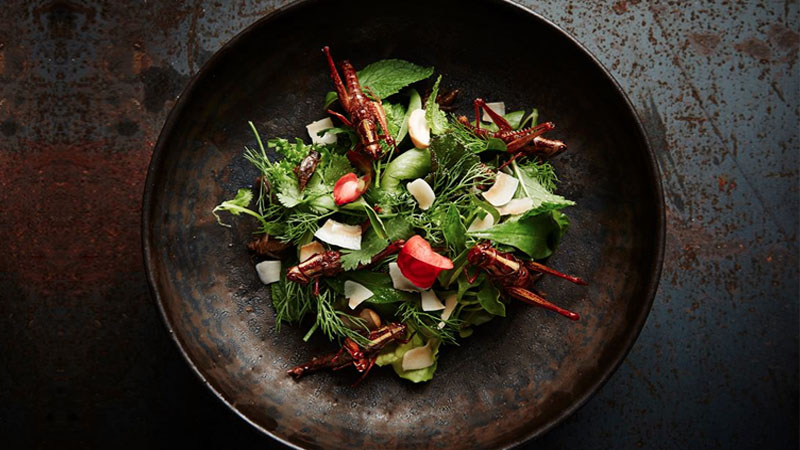At a hip Bangkok restaurant, foodies with adventurous palates tuck into a bug-based menu that includes watermelon salad sprinkled with bamboo worms, nachos with silkworm cherry tomato salsa, and pasta made from ground crickets.
Abundant and stacked with protein, insects have long been a favorite snack among Thai farmers. But they have often carried a negative image, perceived as “food for the poor” in a country with profound class divides.
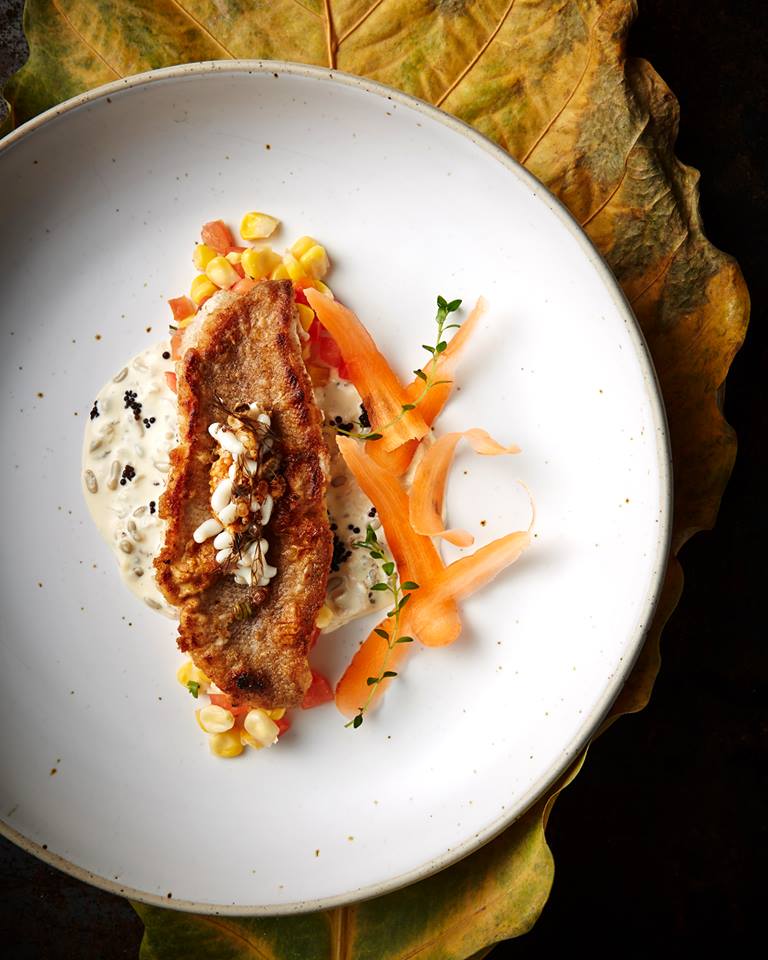
Now bugs are creeping onto the menu of some of Bangkok’s high-end restaurants as the capital’s gourmands leap on the latest global food trend with a sustainable agenda.
Ratta Bussakornnun, a 27-year-old who works in the cosmetics industry, admitted she was initially skeptical as she sat for a meal recently at Insects in the Backyard, which says it offers Bangkok’s first insect-themed fine-dining menu.
Many wealthier Thais, she said, think of insects as “unappetizing and dirty”.
But by the end of her meal she was won over.
“I just ate scallops topped with bamboo worms and a fish fillet with an ant egg sauce. It was delicious,” she beamed, a gentle jazz track playing overhead in the dimly lit restaurant.
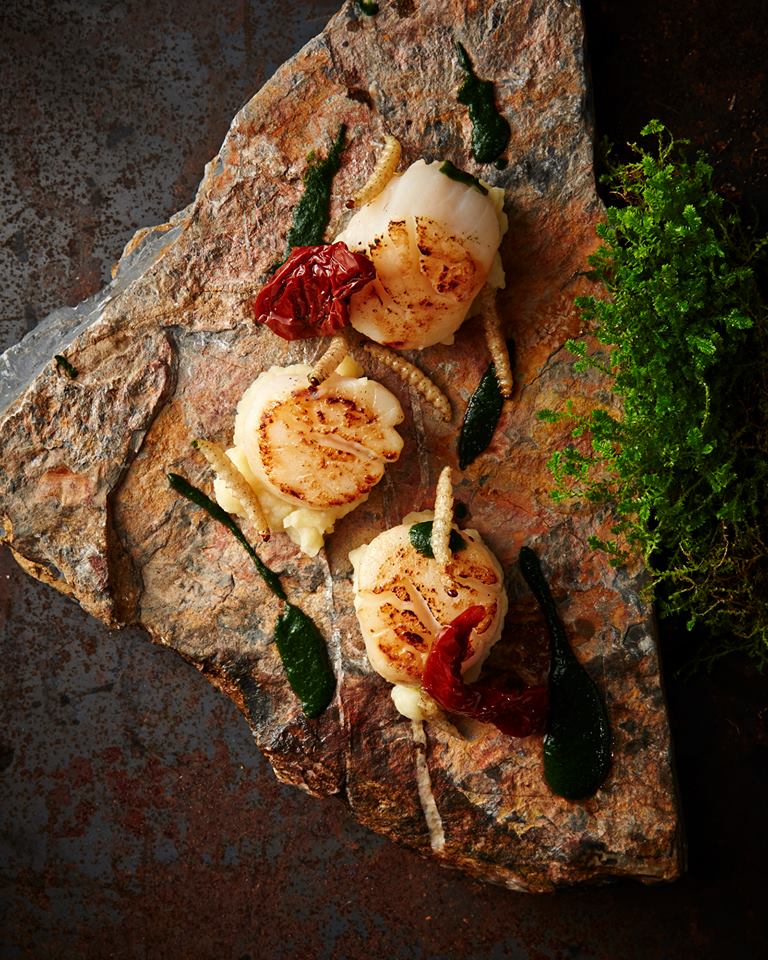
“The food is well presented,” she added. “This gives an impression of sophistication.”
The restaurant is located in Chang Chui — an arty district in western Bangkok filled with vinyl record stores and local fashion designers.
Feed the world
Co-founder Regan Suzuki Pairojmahakij says insects are more than just a gastronomic trend, they are a potential panacea for an increasingly crowded and meat-hungry world.
The Canadian national used to work in the NGO sector with remote rural communities, many of whom incorporated insects into their cuisine.
“I’ve been working in the climate change, natural resource management fields for a number of years, and a big part of it has been the search for the sustainable forms of protein, food and supply chain,” she told AFP.
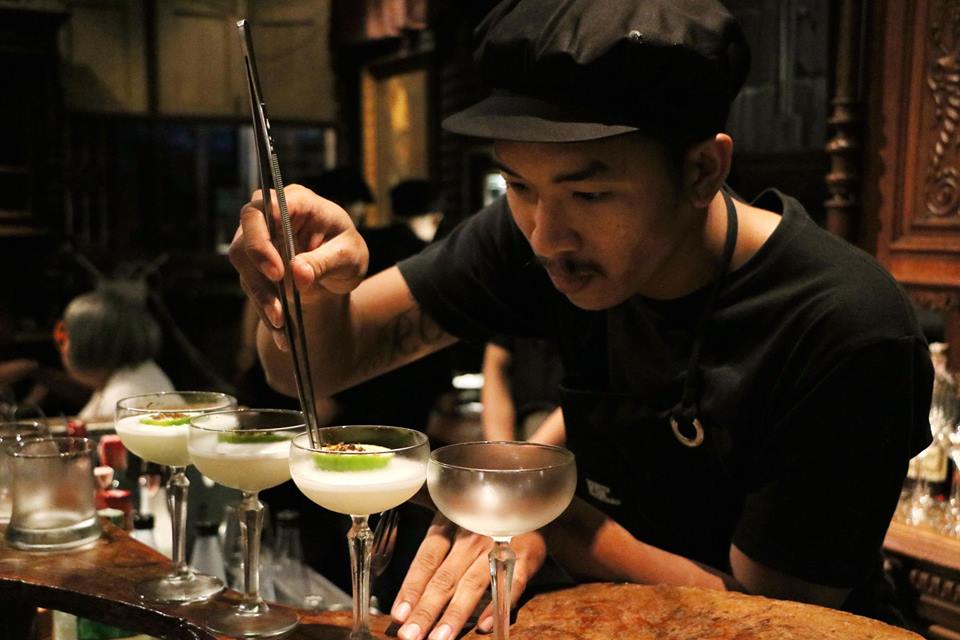
With the world’s population expected to hit 9.8 billion in 2050, many experts remain acutely concerned about how the world will feed itself as well as the environmental damage caused by so much meat being consumed.
Insects, she said, require a fraction of the costs and energy needed to farm compared to staples like chicken, pork, and beef.
That is nothing new to many of Thailand’s rural classes.
Insect consumption is particularly popular in the rural northern regions, mainly due to its drought-prone climate, which has created a more varied and less fussy local palate.
For people in the central part of the country that is fertile all year long, insects are eaten more as a snack, often deep fried and served with seasoning or spicy sauce.
But persuading the wealthy middle classes of Bangkok, a city of huge disproportionate wealth compared to the rest of the country, is still a challenge.
“No Bangkokian eats insects because it has a social status connotation,” said Massimo Reverberi, an Italian entrepreneur of a small start-up called Bugsolutely.
Based in Bangkok and Shanghai, his firm says the not-so-welcoming look of insects remains a major turn-off for many.
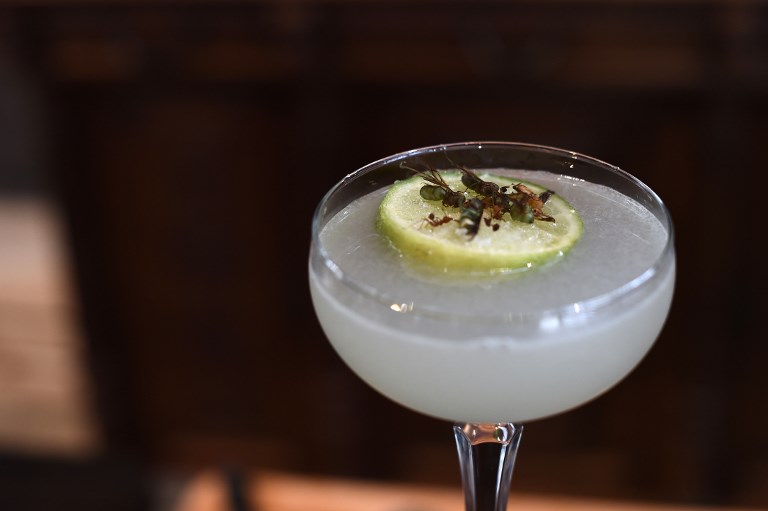
Instead he looks for ways to use insects in everyday food items like chips and energy bars.
Their current product is a pasta made from cricket flour, which is now sold by a small number of outlets in Japan and New Zealand, but not yet Thailand.
Bug eggs
Back in the kitchen of Insects in the Backyard, chef Thitiwat Tantragarn says the most important thing is to get the flavors right.
“Giant water bug meat has a similar texture to crab, so that’s why I use it in the ravioli,” he enthused.
Ant eggs are another favorite of his, which he tends to serve with fish.
“They have a sour flavour, which helps reduce the fishy taste. We try to make sure the menu has balance and harmony.”
“My intention is to change diners’ attitude. Insects are edible and delicious,” he added. “It’s not disgusting.”
His culinary approach appears to be working.
Ania Bialek, a British teacher living in Thailand, said she had tried fried insects sold by street vendors but wanted to know what a higher-end menu would taste like.
“I will happily eat them again,” she said at the end of the meal.
“But I would need someone else to prepare it for me. I will not be keen on cooking it myself.”
